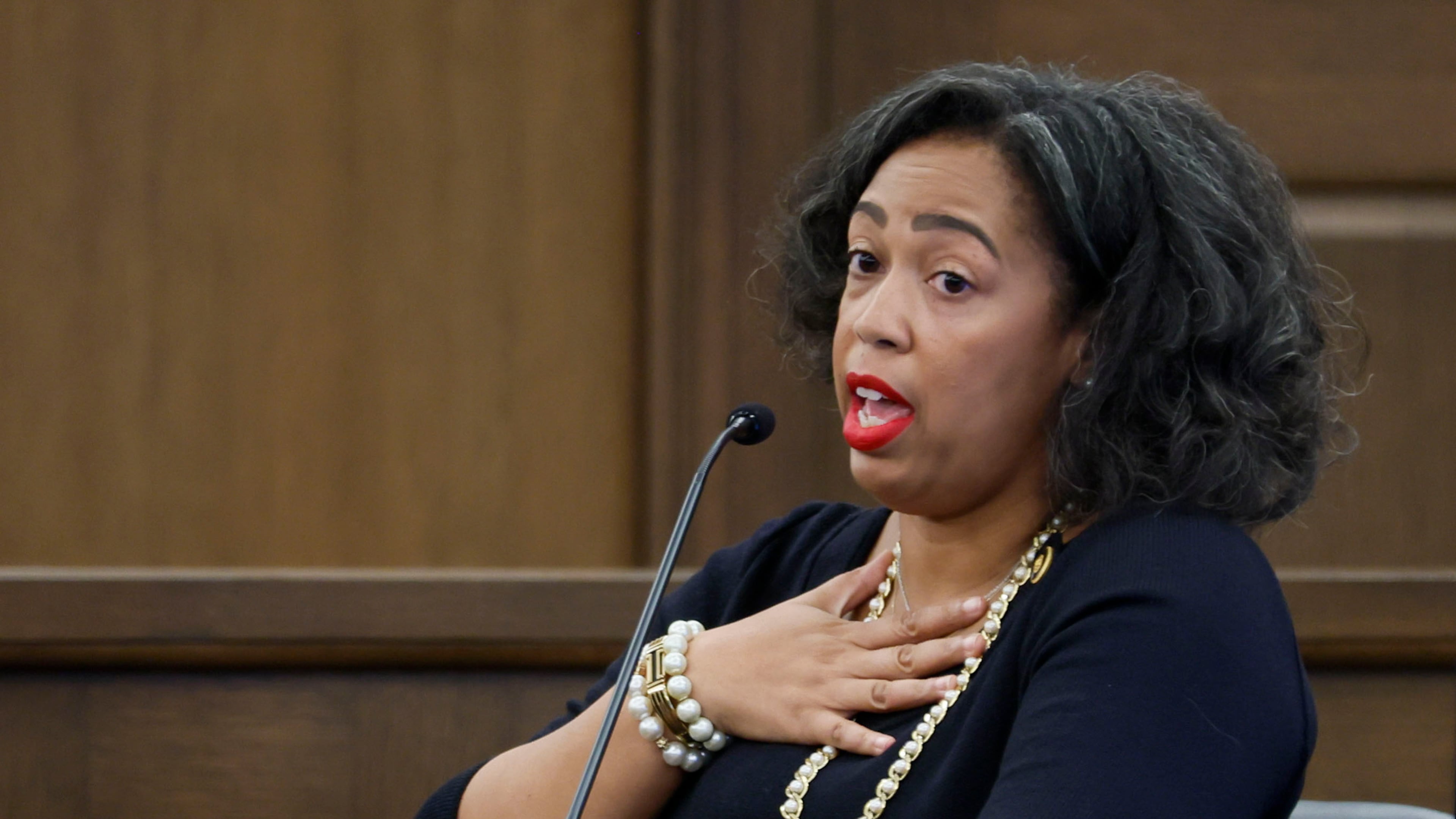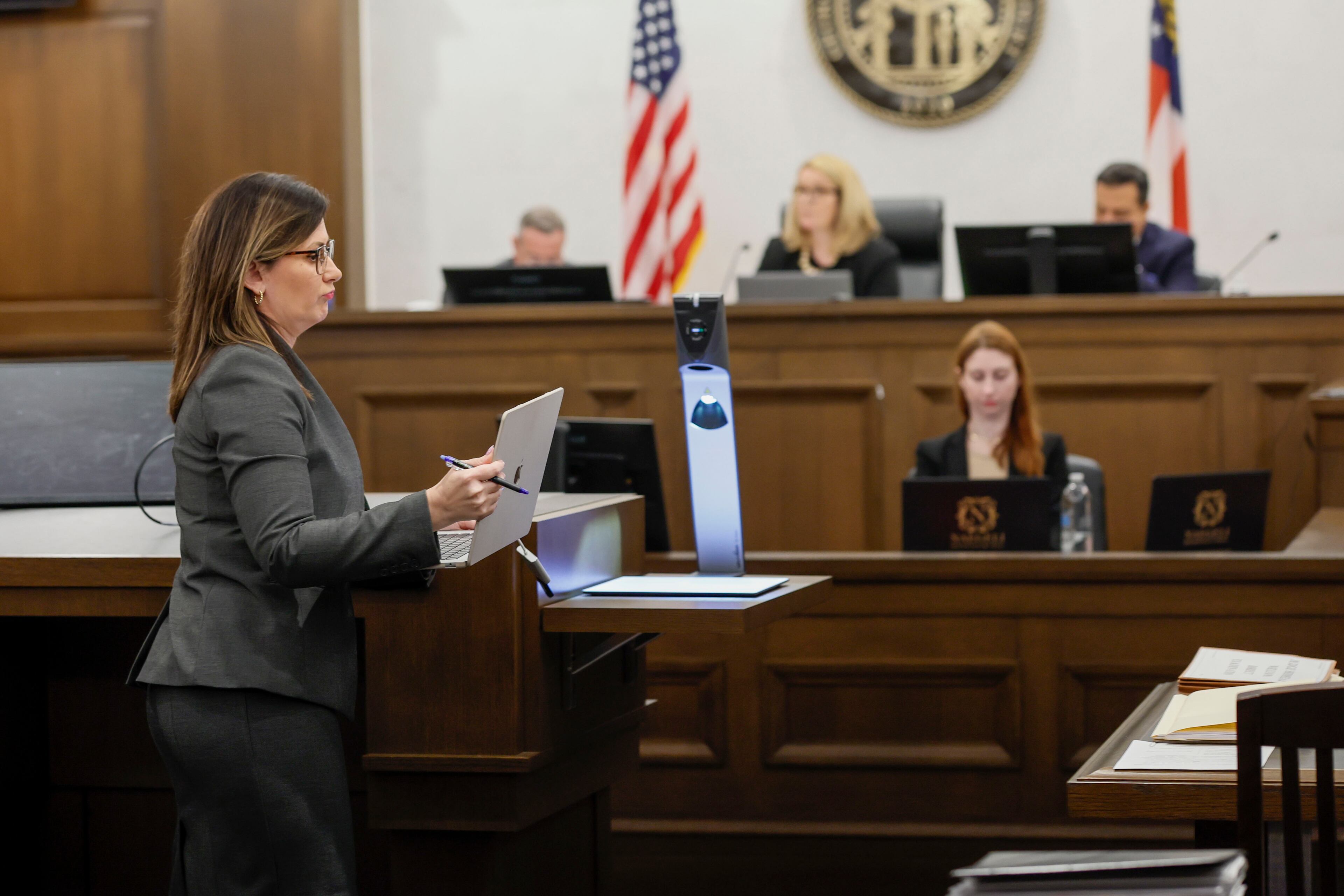Fulton judge admits lengthy case delays in misconduct trial

A Fulton County judge facing more than 30 misconduct charges admitted to many of them during the first day of trial Wednesday, acknowledging lengthy delays in her handling of family law cases.
Shermela Williams denies more serious allegations, including that she gave preferential treatment to a sorority sister in a child custody case. She said Wednesday she should not have detained a young woman for “shock value” during a divorce hearing.
Williams said the 22-year-old woman was being “flippant” in court about trashing her father’s apartment. The judge said she was trying to help the woman understand the consequences of her actions.
“I was wrong,” Williams testified. “Hindsight being 20/20 I would not have handled it like that.”
Williams, elected to the Fulton County Superior Court bench in 2020, faces possible removal from office. She has been accused by the Georgia Judicial Qualifications Commission of violating the state’s code of judicial conduct.
“Despite the allegations and the formal charges, the truth is Judge Williams is a dedicated public servant,” Jamala McFadden, an attorney for Williams, said Wednesday. “Judge Williams’ mistakes and missteps do not amount to judicial misconduct. Judge Williams deserves to stay where the voters of Fulton County put her.”
Williams’ lawyers tried to end the misconduct case Wednesday, citing $3,000 in campaign contributions made by judge members of the JQC’s investigative panel to the incumbent judge unseated by Williams in 2020, Rebecca Rieder. The matter was temporarily shelved for later consideration.
Williams testified Wednesday about opposition she faced from people in Georgia’s legal community, including judges, while challenging and then unseating Rieder. She said some people accused her of stealing the election and others claimed she won because she is Black.

Williams said she walked into an empty office on her first day in the job because Rieder had given away all her furniture to other judges.
“I didn’t have a pen. I didn’t have a chair. I didn’t have any furniture,” Williams said.
McFadden said Williams was “under attack from Day One.” She said Williams has taken the misconduct charges to heart and increased efficiency in case handling in part by hiring new staff, seeking mentorship from superiors and limiting her engagement with attorneys.
Williams inherited 636 cases, some years old, when she became a judge, McFadden said, adding Williams had a larger caseload than other judges and typically received and resolved about 100 cases a month. She said Williams admits there are things she should have done differently.

Litigants in more than a dozen cases waited up to two and a half years for rulings from Williams, the JQC alleged.
JQC Director Courtney Veal said Williams had repeatedly shown disregard for the state’s judicial conduct rules. She said Williams had improperly threatened to give custody of a child to the child’s father in order to punish the child’s mother who had sought Williams’ recusal.
“Ms. Williams has a reputation for being a father judge, meaning she usually rules in favor of fathers in custody issues,” Veal said.
Williams said she made no such threat. She said she considers the child’s best interests when deciding custody cases.
The JQC first brought charges against Williams in June 2024, when she faced 17 counts of code violations in part stemming from her alleged treatment of an attorney and sorority sister whose child custody case landed on Williams’ docket. Williams was accused, among other things, of having a private conversation with the attorney and offering to keep the case away from people the attorney might know.
In February 2025, the commission brought another 15 counts against Williams over other delayed rulings and allegedly improper conversations, as well as her treatment of the young woman in the divorce hearing. Williams said Wednesday she is willing to apologize to the woman.
On Wednesday, the JQC dropped one of the 2025 charges as duplicative of a 2024 charge.

Veal said she expects to finish presenting the evidence against Williams by the end of the week, when the trial will be paused. It is due to resume on June 26.
The JQC’s hearing panel is presiding over the trial. Panel members can recommend a judge’s punishment for approval by the Georgia Supreme Court.



